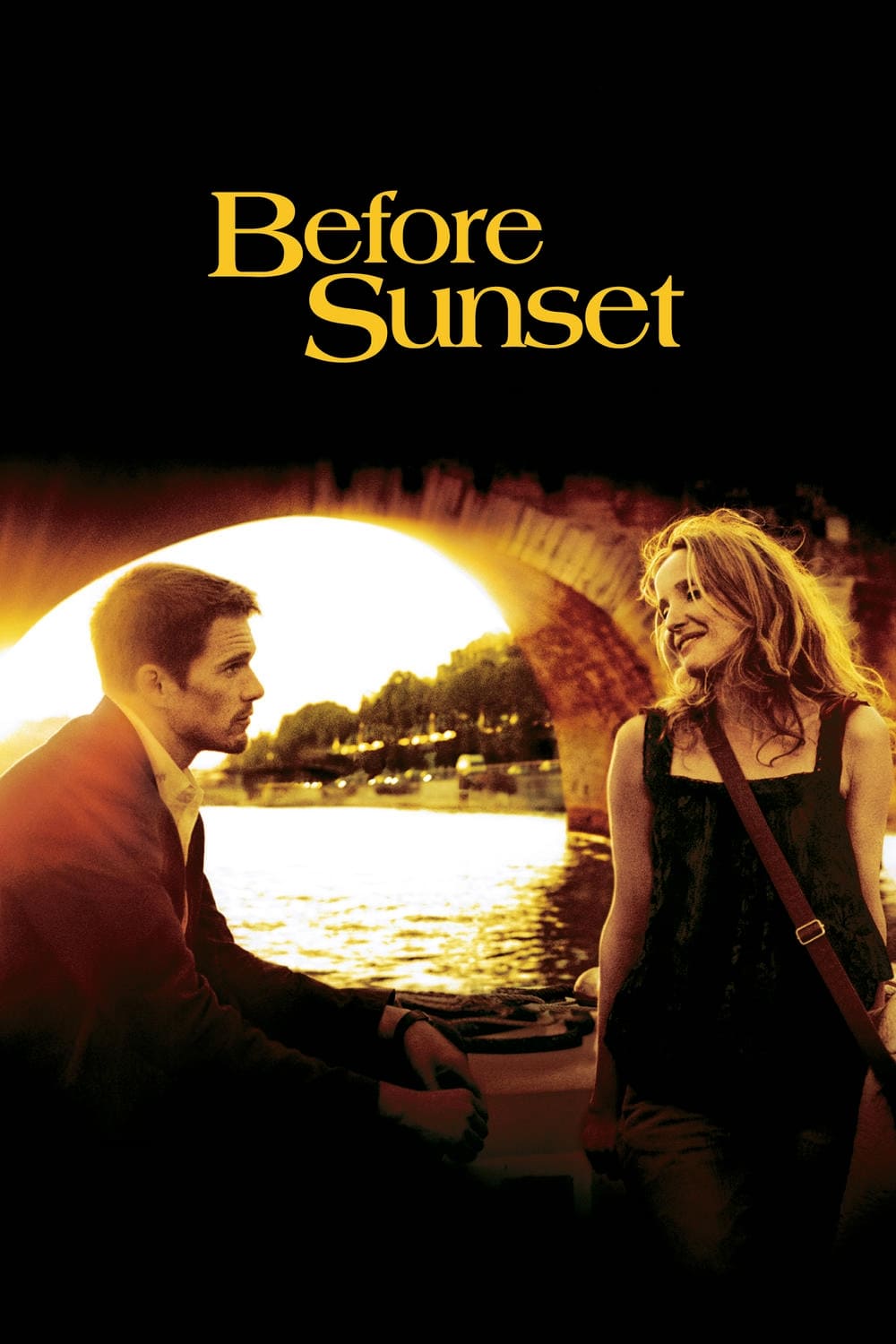
Nine years later, Jesse travels across Europe giving readings from a book he wrote about the night he spent in Vienna with Celine. After his reading in Paris, Celine finds him, and they spend part of the day together before Jesse has to again leave for a flight. They are both in relationships now, and Jesse has a son, but as their strong feelings for each other start to return, both confess a longing for more.
29 Jun Before Sunset (2004)
Reluctance
Finally, Linklater does something with his talent. His strength in the past has been to shape the form of his films to match the subject. At least that’s been true when the subject is the tentativeness of existence.
He’s done well enough in the past, but since his characters were aimless his projects inherited a meaninglessness. Where he tried to impart introspective layers with “Waking Life,” those layers were trite threads of fake profundities. Well, never mind. Artists aren’t required to be particularly smart — even about who they are and what they do.
What is required is the ability to discover and convey something that resonates. Usually in films the resonance is a sort of nervous recognition in the characters and situation. Sometimes, the manner of the film, the nature of the world presented is enough to engage. Such is the value of Kieslowski — and how he managed Delpy.
This film tries something different, something commonly attempted and almost never achieved: the direct drama of discovery between two people. This hosts the construction not in any story or setting or even situation, though they are all employed in the service of the goals. Instead, the whole thing revolves around the tentative motions toward intimacy between two people.
Who this usually fails is because of the unwieldy mechanics. In order to seem real (most reviewers call this film “veristic”) the dramatic projection has to be hyperreal, but not so much that it appears artificial. So how do you dramatically amplify lightly probing intimacies? Its all in the most subtle hesitations of the actors, in that range beyond what “really” might happen and then forthrightly telling us what’s happening.
The construction is perfect: all movies are about other movies. In this case, we literally have the last chapter of the romance as a movie with movie values and memories. More, those are romantically captured in a book that one character carries from the previous movie into this one. Thus, all their discussion, all their reluctances are about having the present film approach the previous one.
I’m astonished at the perfection of the idea, as astonished as I am about how well the two, especially Delpy, support it. This is delicate stuff.
Posted in 2004
Ted’s Evaluation — 3 of 3: Worth watching.


No Comments